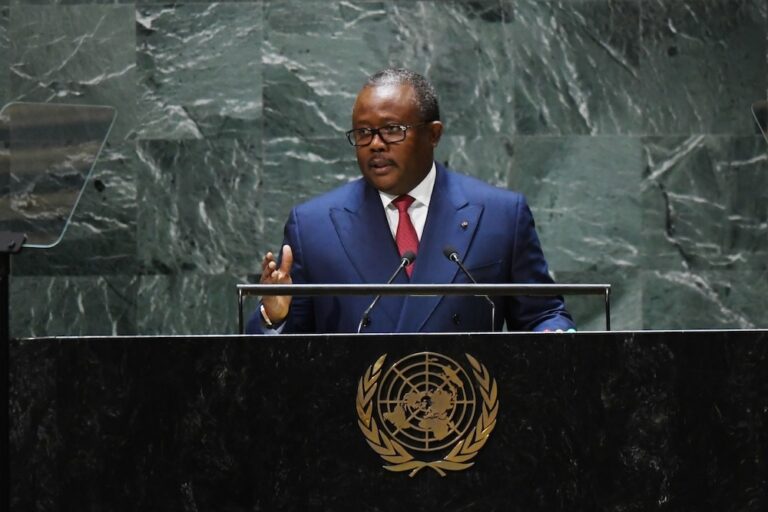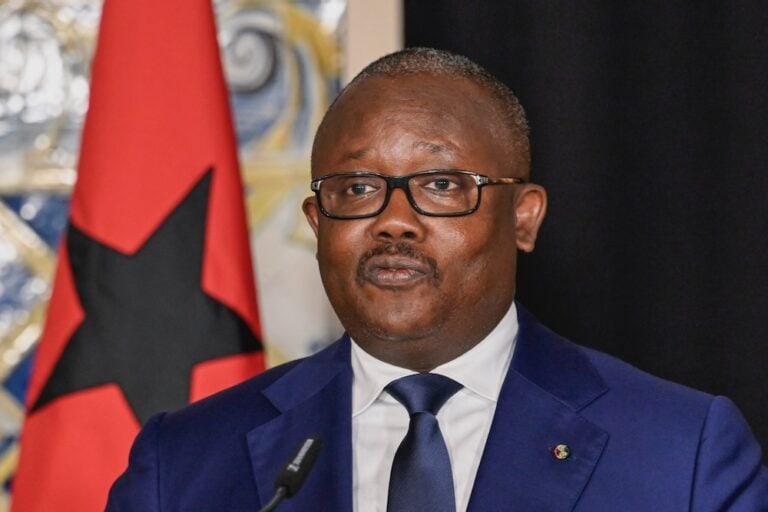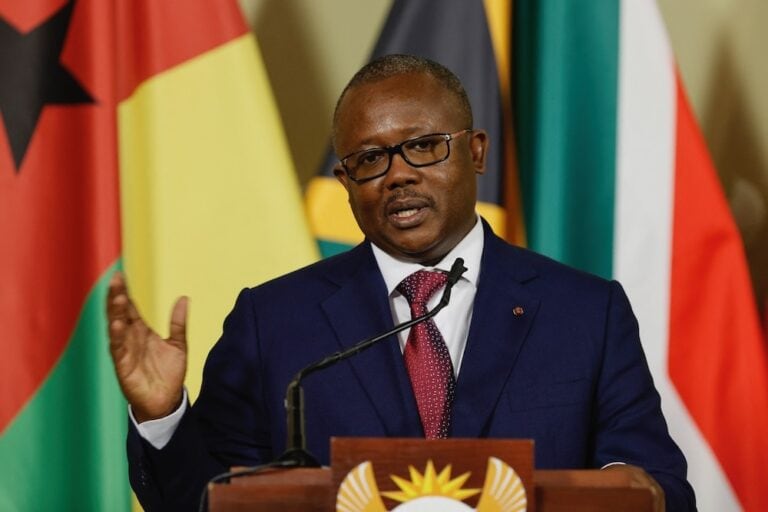(RSF/IFEX) – In a letter to the general chief of staff of the armed forces, Veríssimo Correia Seabra, RSF expressed concern over threats uttered by soldiers against journalists. RSF asked the chief of staff to publicly condemn these remarks and to ensure that officers and soldiers of Guinea-Bissau’s army no longer threaten the country’s journalists. […]
(RSF/IFEX) – In a letter to the general chief of staff of the armed forces, Veríssimo Correia Seabra, RSF expressed concern over threats uttered by soldiers against journalists. RSF asked the chief of staff to publicly condemn these remarks and to ensure that officers and soldiers of Guinea-Bissau’s army no longer threaten the country’s journalists. “The army is a state institution and as such must protect journalists who are only exercising their right to inform, which is guaranteed by the African Charter on Human and Peoples’ Rights ratified by Guinea-Bissau,” stated Robert Ménard, the organisation’s secretary-general. “A free and independent press is one of the indispensable conditions for the development of this country, which has been weakened by several years of conflict,” added Ménard.
According to information obtained by RSF, on 30 March 2001 the air force chief of staff, Brigadier General Melciades Lopes Fernandes, burst into the studio of the private radio station Bombolom FM during a programme devoted to the case of some one hundred soldiers who had been detained and accused of participating in the attempted coup d’état of 23 November 2000. The officer threatened the journalists present. The following day, during a programme broadcast on the public radio and television network RTGB, soldiers once again attacked the journalists invited on the set. “The moment of tolerance is over,” stated the brigadier general, before specifying that he had already lodged a complaint against a journalist from Bombolom FM. He added that in case of war, this radio station would be “the first target”. During the debate, other soldiers stated that “in approaching certain subjects, journalists are only preparing the population for another war.” Another asked “journalists to stop meddling with military affairs. We are just like palm fruit. Whoever falls on us gets pricked. And if we fall on somebody, it will be even worse.” The parliament, on the initiative of the African Party for the Independence of Guinea-Bissau and Cape Verde (PAIGC, opposition), publicly condemned these remarks.
RSF also noted that on 15 February, Athizar Mendes, a journalist with the private weekly “Diário de Bissau”, a photographer with the newspaper, and their driver, were detained for one night for trying to investigate the repeated summonses of two of the country’s diplomats by police. On 8 March, following threats of prosecution uttered by the deputy public prosecutor of the republic, some thirty journalists signed a motion “against censorship and the arbitrary detention of journalists in the exercise of their profession in Guinea-Bissau.”


